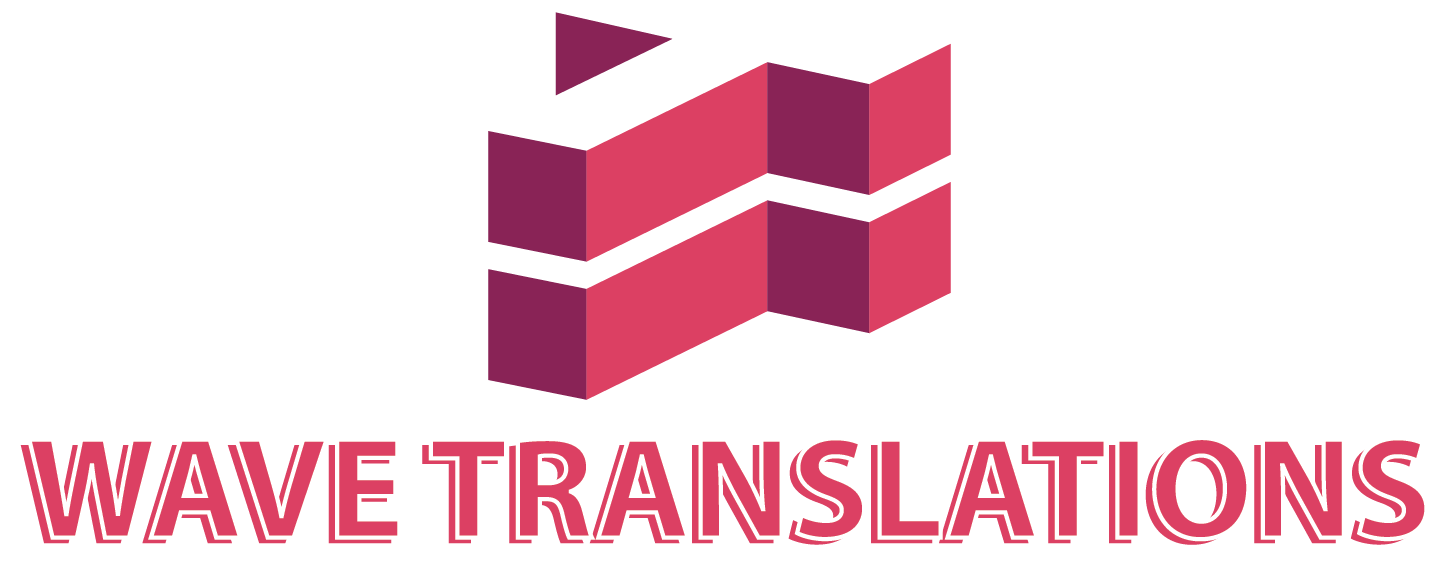Clear communication is the foundation of effective healthcare. However, language barriers can create significant challenges for both patients and medical professionals. Misunderstandings, incorrect diagnoses, and improper treatments can result from poor communication, leading to serious health consequences.
Healthcare Interpretation services are essential in bridging these gaps, ensuring that all patients receive the right care regardless of their language proficiency. In an increasingly diverse world, healthcare providers must prioritize language access to improve patient experiences and medical outcomes. Wave Translations offers professional medical translation , medical interpretation and professional medical records translation services to help healthcare institutions overcome these barriers and deliver better care to all patients.
Understanding Interpretation Services in Healthcare
Interpretation services in healthcare involve translating spoken or signed communication between patients and healthcare providers who speak different languages. These services ensure that patients fully understand their diagnoses, treatment plans, and medical procedures.
There are several types of interpretation services available. On-site interpretation allows a professional interpreter to be physically present during medical consultations, facilitating direct and accurate communication. Over-the-phone interpretation (OPI) enables patients and healthcare providers to communicate with an interpreter via phone for real-time language support.
Video remote interpretation (VRI) makes use of video conferencing technology, combining visual and auditory communication to enhance the interpretation process. Each of these methods has unique advantages, and the choice of service depends on patient needs, urgency, and available resources.
The Impact of Language Barriers in Healthcare
Language barriers can negatively impact healthcare in numerous ways. Miscommunication often leads to medical errors, where patients may misunderstand important instructions, resulting in incorrect medication use or improper treatment. This can have serious health consequences. Additionally, patients who struggle to communicate effectively with their healthcare Industry providers often experience frustration, leading to dissatisfaction and mistrust. As a result, they may fail to follow medical advice or treatment plans, further exacerbating their health conditions.
Delayed treatment is another major issue caused by language barriers. When medical professionals cannot obtain accurate information from patients, diagnoses can be delayed, which in turn increases healthcare costs and worsens health conditions. Furthermore, language barriers contribute to health disparities, as patients with limited English proficiency may receive lower-quality care compared to native speakers. This leads to unequal healthcare access and poorer overall health outcomes for non-native speakers.

Benefits of Healthcare Interpretation Services
Improved Patient Understanding
Language barriers can prevent patients from fully understanding their diagnosis, treatment options, and medication instructions. Professional interpreters ensure clear communication between healthcare providers and patients, reducing misunderstandings and improving adherence to medical advice. This results in better health outcomes and increased patient satisfaction, as they feel heard, informed, and empowered in their healthcare decisions.
Enhanced Patient Safety
Miscommunication in healthcare can lead to serious medical errors, including incorrect treatments or dosages. Interpretation services help prevent such errors by ensuring accurate communication between doctors and patients. By eliminating confusion, these services reduce the risk of misdiagnosis, medication errors, and complications, ultimately improving overall patient safety and reducing hospital readmission rates.
Higher Quality of Care
When patients and healthcare providers communicate effectively, the quality of care improves significantly. Interpretation services enable doctors to gather complete medical histories, conduct thorough examinations, and provide appropriate treatments. Patients also feel more comfortable discussing their symptoms, leading to better diagnoses and personalized treatment plans that address their specific health concerns.
Increased Healthcare Accessibility
Many individuals with limited English proficiency avoid seeking medical care due to language barriers. Interpretation services make healthcare more accessible by breaking down these barriers and ensuring that all patients receive equitable care. This promotes inclusivity, allowing diverse communities to seek medical attention without fear of miscommunication or inadequate treatment.
Stronger Doctor-Patient Relationships
Effective communication fosters trust and confidence between patients and healthcare providers. When patients can express themselves in their native language, they feel more valued and understood. This strengthens doctor-patient relationships, leading to better cooperation, greater patient engagement, and a more compassionate healthcare experience that prioritizes the patient’s well-being.
Legal and Ethical Compliance
Hospitals and clinics are legally required to provide language assistance to patients with limited English proficiency. Interpretation services help healthcare providers comply with legal regulations and ethical standards by ensuring that all patients receive fair and unbiased medical care. This reduces the risk of lawsuits, protects patient rights, and upholds healthcare institutions’ reputations.
Reduced Healthcare Costs
Effective communication through interpretation services prevents unnecessary medical procedures, misdiagnoses, and emergency visits caused by misunderstandings. By improving patient education and adherence to treatment plans, healthcare facilities can reduce complications and hospital readmissions. This leads to significant cost savings for both healthcare providers and patients, making medical care more efficient and affordable.
Types of Interpretation Services
Healthcare institutions have several options when it comes to interpretation services. One of the most reliable options is hiring professional human interpreters. These experts are trained in medical terminology and cultural awareness, ensuring accurate and sensitive communication between healthcare providers and patients. Another common approach is relying on bilingual healthcare staff.
Medical professionals who speak multiple languages can assist in patient communication, but they may not always have the necessary medical interpretation training. Technology-driven solutions have also become increasingly popular. AI-powered translation tools, mobile apps, and telehealth services offer real-time language assistance, making healthcare more accessible for patients who speak different languages. While these solutions can be highly effective, they should be used alongside professional interpreters to ensure accuracy, especially in complex medical situations.
The Role of Certified Medical Interpreters
Certified medical interpreters play an essential role in ensuring effective communication between healthcare providers and patients. These professionals undergo specialized training and certification processes that equip them with the necessary skills to deliver accurate medical interpretations. One of the key areas of expertise for certified medical interpreters is fluency in medical terminology. They understand complex medical jargon and can convey it clearly to patients, helping them comprehend their diagnoses and treatment options.
In addition to language skills, medical interpreters are trained to maintain confidentiality and adhere to ethical standards. They are required to follow strict privacy regulations to ensure that patient information remains protected. Cultural sensitivity is another crucial aspect of their work. Certified medical interpreters are knowledgeable about cultural differences that may influence a patient’s healthcare decisions and treatment adherence. By addressing these cultural nuances, they help create a more inclusive and patient-centered healthcare experience.
Challenges in Providing Interpretation Services in Healthcare
Limited Availability of Qualified Interpreters
Finding skilled medical interpreters proficient in multiple languages can be challenging, especially for less common languages. The demand for interpretation services often exceeds the supply, leading to delays or reliance on untrained individuals, which can compromise accuracy and patient safety.
High Costs of Interpretation Services
Providing professional interpretation services, whether in-person, over the phone, or via video, can be expensive for healthcare facilities. Budget constraints may limit access to these services, especially in smaller clinics or rural areas, making it difficult to ensure language access for all patients.
Time Constraints in Emergency Situations
In emergencies, patients need immediate medical attention, but waiting for an interpreter can cause delays in treatment. Miscommunication due to the lack of an available interpreter can lead to serious medical errors, affecting the quality of urgent care and patient outcomes.
Confidentiality and Privacy Concerns
Medical interpretation involves sensitive patient information, making confidentiality a major concern. Some patients may feel uncomfortable discussing personal health issues through a third party, especially if the interpreter is from their community. Ensuring privacy while maintaining accurate communication is a significant challenge.
Technological and Connectivity Issues
Remote interpretation services rely on technology, but poor internet connections, outdated equipment, or technical difficulties can disrupt communication. Inconsistent audio or video quality can make it difficult for patients and providers to understand each other, affecting the effectiveness of virtual interpretation solutions.

The Future of Interpretation Services in Healthcare
The future of healthcare interpretation services looks promising with continuous advancements in technology. Artificial intelligence and machine learning are playing an increasingly important role in improving interpretation accuracy and efficiency. AI-powered translation tools are being refined to provide more precise language support, reducing the risk of errors in medical communication.
Telemedicine is also transforming the way interpretation services are delivered. With the growing use of virtual healthcare consultations, remote interpretation services are becoming more integrated into telehealth platforms. This allows patients to receive language assistance during virtual appointments, ensuring that they fully understand their diagnoses and treatment plans.
Wearable translation devices are another innovation that holds great potential. These smart devices can provide instant, hands-free communication between patients and healthcare providers, making interpretation services even more accessible. As technology continues to evolve, interpretation services will become more efficient and widely available, helping to eliminate language barriers in healthcare.
Conclusion
Language should never be a barrier to quality healthcare. Effective communication is essential for accurate diagnoses, successful treatments, and positive patient experiences. By investing in interpretation services, healthcare providers can ensure that all patients receive equal access to medical care, regardless of their language proficiency.
Wave Translations is dedicated to providing high-quality interpretation services to help healthcare institutions bridge language gaps and improve patient outcomes. Whether through on-site interpreters, phone-based services, or AI-powered solutions, our services ensure that every patient is heard and understood.
Are you ready to enhance communication in your healthcare facility? Contact Wave Translations today to explore our healthcare interpretation services and improve patient care!

